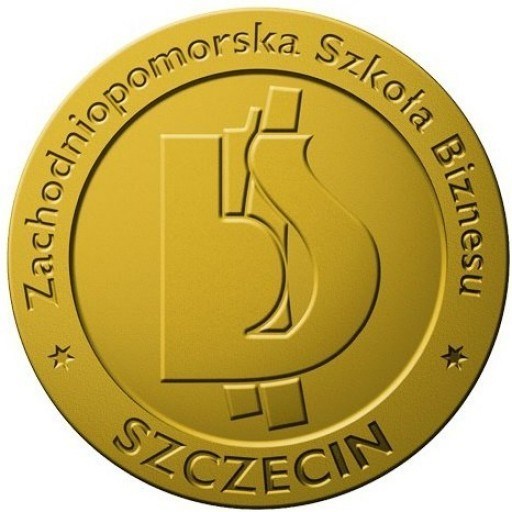Photos of university / #zpsb_w_szczecinie
Economics at West Pomeranian Business School is a comprehensive undergraduate program designed to equip students with a solid foundation in economic theory, quantitative methods, and practical skills essential for analyzing and solving real-world economic problems. The curriculum covers a wide range of topics including microeconomics, macroeconomics, econometrics, finance, international economics, and management. Emphasizing both theoretical understanding and practical application, the program prepares graduates to operate effectively in various sectors such as finance, consulting, public administration, and international trade. Students will develop critical thinking, data analysis, and decision-making skills through coursework, case studies, and internships. The program is delivered by experienced academics and industry professionals who bring real-world insights into the classroom, fostering an environment of active learning and intellectual growth. With a focus on creating versatile economists, the program also offers opportunities for specialization, research projects, and participation in international exchanges. Graduates will be well-equipped to pursue careers in business consulting, government agencies, financial institutions, or to continue their education through postgraduate studies. The Economics program at West Pomeranian Business School is committed to preparing students for the dynamic economic landscape by providing modern teaching methods, up-to-date knowledge, and strong professional networks.
The Economics program at West Pomeranian Business School offers a comprehensive curriculum designed to equip students with a solid understanding of economic principles, analytical skills, and practical knowledge applicable in various sectors of the economy. The program covers fundamental topics such as microeconomics and macroeconomics, providing students with insights into individual and aggregate economic behaviors, market mechanisms, and economic policy analysis. Students will explore key areas such as financial management, fiscal and monetary policy, international trade, and economic development, enabling them to analyze and interpret complex economic data and trends.
Throughout the course, emphasis is placed on developing critical thinking and problem-solving skills necessary for effective decision-making in business and public administration contexts. The program integrates theoretical frameworks with practical applications, including case studies, simulations, and project work, to prepare students for real-world economic challenges. Additionally, students will gain proficiency in economic software tools and statistical analysis, which are essential for research and policy formulation.
The curriculum also covers contemporary issues such as sustainable development, the impact of globalization, and digital economy transformations, preparing graduates for careers in government agencies, financial institutions, consulting firms, and international organizations. The program promotes teamwork, communication skills, and ethical considerations in economic practice, ensuring that graduates are well-rounded professionals capable of contributing positively to society.
Students have access to various specialized electives, internships, and workshops aimed at fostering practical experience and professional networking. The program's faculty comprises experienced economists and researchers dedicated to quality education and mentorship. Graduates of the Economics program at West Pomeranian Business School will be well-equipped to pursue careers in economic analysis, consultancy, policy advisory roles, or further academic research, making a significant contribution to the dynamic and evolving economic landscape.
Program requirements for the Economics Bachelor's degree at West Pomeranian Business School include a combination of foundational coursework, elective subjects, practical experience, and assessment criteria. Applicants are typically required to have completed secondary education with a strong background in mathematics, economics, or related fields. Proficiency in English is essential, often demonstrated through standardized tests or sufficient prior education in the language. The curriculum mandates foundational subjects such as microeconomics, macroeconomics, quantitative methods, and introductory finance, which are designed to equip students with essential economic theories and analytical skills. Students must also engage in specialized courses such as European economic integration, international trade, and economic policy analysis, reflecting the program’s focus on regional and global economic issues. Practical modules, including internships and case studies, are integral components, allowing students to apply theoretical knowledge in real-world contexts and develop key competencies in problem-solving, data analysis, and economic consulting. To graduate, students generally need to complete a series of assessments, including written exams, project presentations, and research papers, which evaluate their understanding and ability to analyze economic phenomena. Attendance and participation are also considered important, as they contribute to the overall learning process. Additionally, the program emphasizes the development of soft skills such as teamwork, communication, and ethical decision-making, which are essential for careers in business and public administration. The university may also require students to pass a final thesis project, demonstrating their capacity for original research and comprehensive economic analysis. Thus, program completion hinges on meeting academic performance standards, successfully passing all required courses and assessments, and fulfilling internship requirements when applicable. Overall, the program aims to produce graduates who are well-versed in economic theory, proficient in quantitative and qualitative analysis, and prepared for professional roles in various sectors including government, finance, consulting, and international organizations.
Financing studies at the West Pomeranian Business School for the Economics program are primarily supported through a combination of state funding, student fees, and potential scholarship opportunities. The university offers a transparent fee structure that covers tuition, access to academic resources, and participation in extracurricular activities related to economics. Students may pay the tuition fee annually or per semester, depending on their enrollment plan. For domestic students, tuition fees are set at a competitive rate aligned with other Polish higher education institutions, with possible discounts for early registration or for students with demonstrated academic excellence. International students may incur slightly higher fees, reflective of the university’s policy to remain competitive in attracting international applicants.
Scholarships and financial aid options are available to support students’ studies, including merit-based scholarships awarded for academic achievements, social scholarships for students facing financial hardship, and special grants for outstanding research proposals. The university also participates in national financial aid programs, which may provide loans or supplementary funding for eligible students. Additionally, students are encouraged to explore external funding sources, such as governmental or private scholarships aimed at supporting students in economics and business fields.
The university offers guidance on financing options through its student services office, where prospective and current students can receive detailed information about fee schedules, payment deadlines, and eligibility criteria for various types of financial assistance. The institution strives to ensure that financial barriers do not hinder qualified students from pursuing their economics studies, and thus works to provide affordable and accessible education pathways. Payment plans may be available to help students manage their expenses over the duration of their studies, and students are advised to consult the official university website or contact the admissions office for the most current information regarding tuition fees and financial support programs.
The Economics program at West Pomeranian Business School offers students a comprehensive education designed to equip them with strong analytical and practical skills necessary for understanding and participating in modern economic systems. The program emphasizes a solid foundation in economic theory, including microeconomics, macroeconomics, and quantitative methods, enabling graduates to analyze market trends, develop strategic decisions, and solve complex economic problems. Students are also introduced to various aspects of business administration, financial management, and international economics, which prepare them for the dynamic global market environment. The curriculum combines theoretical knowledge with practical applications, often involving case studies, internships, and collaborative projects with local businesses and economic institutions. Students will learn about economic policy, fiscal and monetary systems, and the role of institutions in economic development. The program aims to develop critical thinking, problem-solving capabilities, and effective communication skills, ensuring graduates are well-prepared for careers in consulting, finance, government agencies, or pursuing further studies. The faculty comprises experienced professionals and scholars committed to delivering high-quality education and fostering a practical understanding of economic principles. Various teaching methods are employed, including lectures, seminars, workshops, and e-learning modules, to enhance learning and engagement. Graduates of this program receive a comprehensive education that allows them to operate successfully within the economic sector, contribute to business growth, and adapt to the evolving economic landscape. The program also encourages active participation in research projects and student organizations related to economics and business, aiming to nurture leadership and teamwork skills. Upon completion, students are awarded a Bachelor's degree in Economics, opening doors to diverse career opportunities or further academic pursuits at graduate levels.









